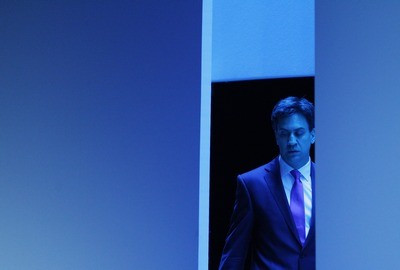Ed Miliband Bossed Conference Season

So the longest three weeks of the political calendar, the annual party conferences, are over and the inevitable question looms: "What will we remember this time next week?" The answer can be summed up in a single word. 'Miliband.'
Not only did the Labour leader's big end-of-conference speech move the agenda with a shock pledge to freeze energy bills, so leaving Tory leader David Cameron searching for something to match it, but his row with the Daily Mail ensured he dominated the following week's Tory conference as well.
Those at the Conservative rally in Manchester said Miliband had made more of an impression at the gathering than most of the government's ministers.
Perhaps it was that struggle to find a compelling initiative to match the Labour leader's assault on predatory capitalists, led by the big six energy companies and land speculators, that convinced David Cameron the best thing he could do was keep his head down.
Whatever the reason, the Prime Minister's speech was flat, dull and relatively policy-light. A holding pattern for the really big, pre-election one next year perhaps?
But he may have overdone the serious, grown up approach because, as aides began to realise he was facing pretty poor reviews, they started briefing about the one policy announcement which had been buried in the speech, about depriving under 25s of any welfare payments.
The audience in the hall and the media all missed it, just as they seemed to miss his unexpected praise for social workers, not something we regularly hear from Tory leaders.
Belated briefing
Suggestions that the briefing on the welfare policy was a last-minute attempt to grab some different headlines were encouraged by the fact that, when quizzed about it later, ministers struggled to come up with even the broadest detail.
The next suggestion from the Cameron camp was that the really big announcements, aimed at combating Miliband's success in moving the debate onto the cost of living and away from the recovery, would come in Chancellor George Osborne's autumn statement later in the year.
Even Boris Johnson refused to play ball, and offered nothing but support for his leader. The two seem to have agreed that the London Mayor will re-enter the Commons at some suitable point, so long as he behaves himself in the run-up to the election.
Possibly the brightest star at the conference, who also seemed to go sadly unnoticed, was the 12-year-old schoolgirl Xantaine Campbell who virtually stole the show from Cameron when she delivered a crowd-pleasing speech from the platform praising her free school, Birmingham's Perry Beeches, for its "outstanding education". The next William Hague, perhaps (but different, obviously).
Meanwhile Liberal Democrat leader Nick Clegg was almost forgotten, despite the fact he had a distinctly successful conference, having seen off the traditional challenge from Vice Cable and forced some "grown up" policies from his conference.
All three leaders can claim they strengthened their positions and there is no talk of leadership challenges this side of the 2015 general election.
And then there was Ukip and its leader Nigel Farage, who had an awful conference after his MEP Godfrey Bloom finally went too far by "joking" that a group of women were "sluts" and ended up being kicked out of the party.
A furious Farage decided the best plan of action, as his conference had bombed, was to hijack the Tory one and have another go. Which he did to some effect by speaking at fringe meetings about the possibility of election deals with Tories at local level.
Cabinet and shadow cabinet reshuffles seem to be on the cards, however. Both Cameron and Miliband appear to have postponed them until the conferences were out of the way.
Probably the most positive thing to have emerged from the conference season was the opening up of clear dividing lines between Labour and the Conservatives, giving both parties and the media something to get their teeth into over the coming 18 months.
And they are pretty old-style dividing lines at that. Miliband is being accused of taking Labour back to the "socialism" of the 1970s, or Michael Foot's disastrous 1983 campaign, or Neil Kinnock's failed 1992 campaign - take your pick - while Cameron is seen to be hardening his anti-welfare and public spending platform with clear references to the "good old days" of Margaret Thatcher.
At least it is finally stacking up to be a real, dare-it-be-said ideological, election campaign.
© Copyright IBTimes 2025. All rights reserved.






















